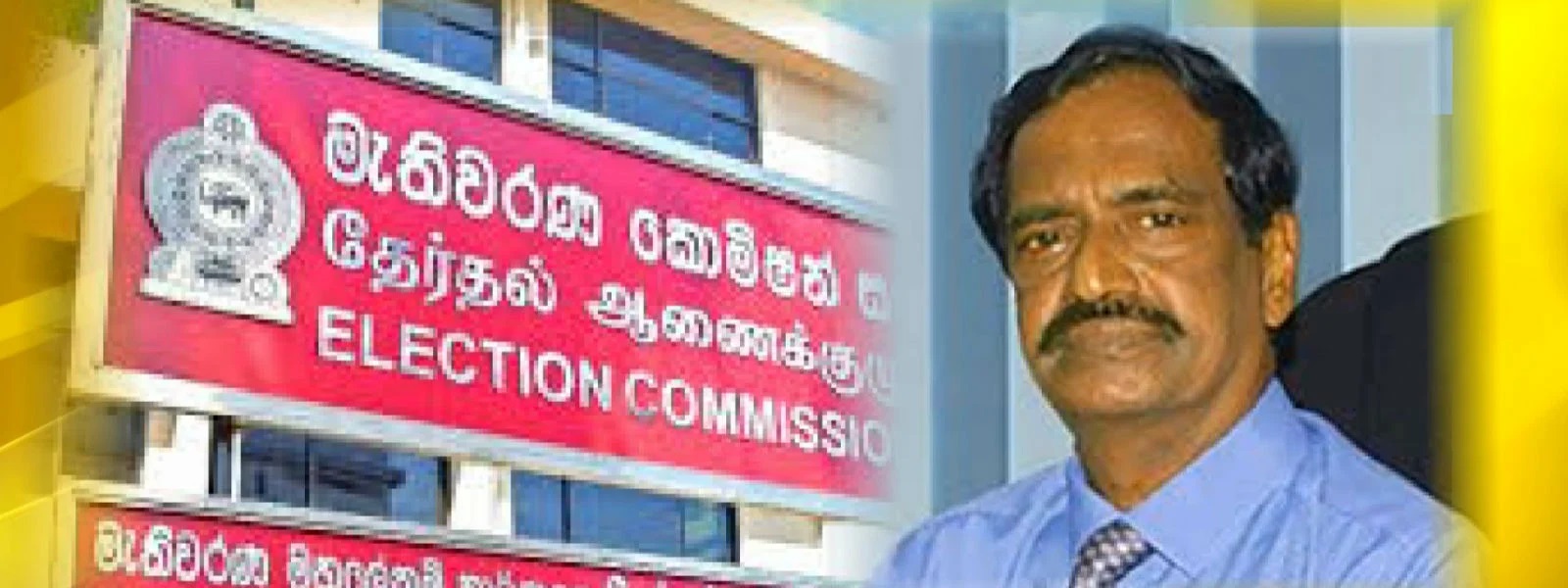The Election Commission (EC) has sought a meeting with Prime Minister Dinesh Gunawardena to discuss the local council election date acceptable to the Government, as the tussle over financing the overdue polls enters another week.
The Prime Minister’s office confirmed that a request had been received and that an appointment would be speedily given.
This week, the EC held talks with political parties and other stakeholders in a bid to reschedule the twice-postponed local council elections. It was later decided that the EC, which till now had decided the election dates, will invite the Prime Minister to do so.
At least one organisation, the People’s Alliance for Free and Fair Elections (PAFFREL), now plans to petition the Supreme Court against Ranil Wickremesinghe in his capacity as Finance Minister for not releasing the funds for the polls.
Funds have still not been received to conduct the polls, the EC confirmed, notwithstanding a March 3 interim order from the Supreme Court preventing the authorities from withholding funds for the election.
Tamil National Alliance Parliamentarian M.A. Sumanthiran pointed out at this week’s meeting that while Mr. Wickremesinghe, as President, had immunity from prosecution, this did not apply to “any proceedings in any court in relation to the exercise of any subject or function assigned to the President or remaining in his charge”–that is, actions taken through any of his other ministries.
Separately, the Cabinet via decisions taken last month withdrew Treasury authority to release funds for which budgetary approval had previously been provided–including the local council elections–by stating that revenue was below expectation.
Instead, the Cabinet decreed that the Treasury, headed by Finance Secretary Mahinda Siriwardana, could only disburse funds for a defined list of essential expenditure with any other spending needing the Finance Minister’s approval. Despite having been budgeted for in the 2023 Appropriations Bill, elections were not on the list.
The Sunday Times obtained the Cabinet papers and decisions through an application under the Right to Information Act.
Under the heading “Maintaining Essential Public services in the Most Difficult Financial Circumstances”, a memorandum presented on February 6 by Mr. Wickremesinghe (in his capacity as Finance Minister) states that “it is expected to order the Treasury to take necessary steps as it is required to provide imprest only for the essential public expenditure indicated below, with a view to maintain the public service until the condition of Government revenue improves”.
The essential recurrent expenditures are listed as payment of salaries and wages, debt servicing, pensions, medical supplies of hospitals, monthly Samurdhi subsidies, financial assistance to elders, differently-abled low-income receivers, kidney patients and those affected by economic difficulties, Grade 5 scholarship allowances, Mahapola and bursaries, Thriposha programme and farmers’ pension.
Permitted are disbursements for the school and preschool nutrition programme, payment for war heroes/disabled soldiers, ‘Ranaviru Mapiya Rekawarana Allowance’, “unpostponable” [sic] electricity, water, fuel and essential telecommunication services, and food supplies to hospitals, prisons and security divisions.
Also included were payments made as building rents, for maintenance, cleaning and security services, statutory payments such as Employees’ Provident Fund and the fertiliser subsidy.
“After considering the liquidity on the official bank account of Deputy Secretary to the Treasury, it is expected to release imprest only for the essential recurrent expenditure mentioned under paragraph 2.1 above, expenditure related to capital development projects financed through local funds, the long overdue payments and essential services such as emergency maintenance and repairs,” the Cabinet paper states.
Funds will only be released “for other requirements” if there was any balance provision after allocations are made for the “unpostponable [sic] activities”, as specified. Approval was granted.
A subsequent Cabinet paper–submitted after a “marginal” surplus was recorded in the Government’s revenue–expanded the list to include paddy purchases from farmers, expenditure related to minimising malnutrition among children and pregnant mothers, gratuity payments, settlement of outstanding bills pertaining to the decentralised budget programme, “and other essential expenditure, as found necessary and approved by the Minister of Finance, Economic Stabilisation and National Policies”.
This week, the opposition Samagi Jana Balawegaya (SJB) and the National People’s Power (NPP) filed separate petitions before the Supreme Court accusing Treasury Secretary Mahinda Siriwardana of acting in contempt of court.
They alleged he had failed to act in accordance with the Court’s interim order preventing him from withholding funds necessary to conduct the local council polls.


